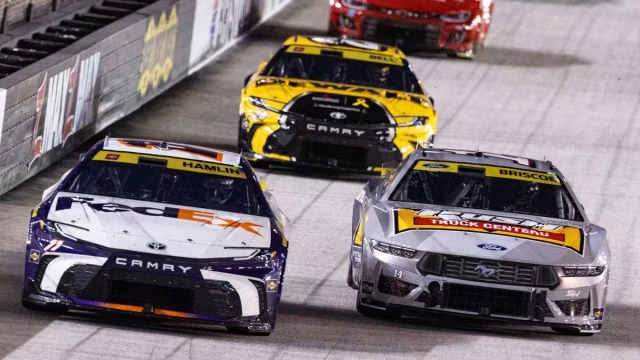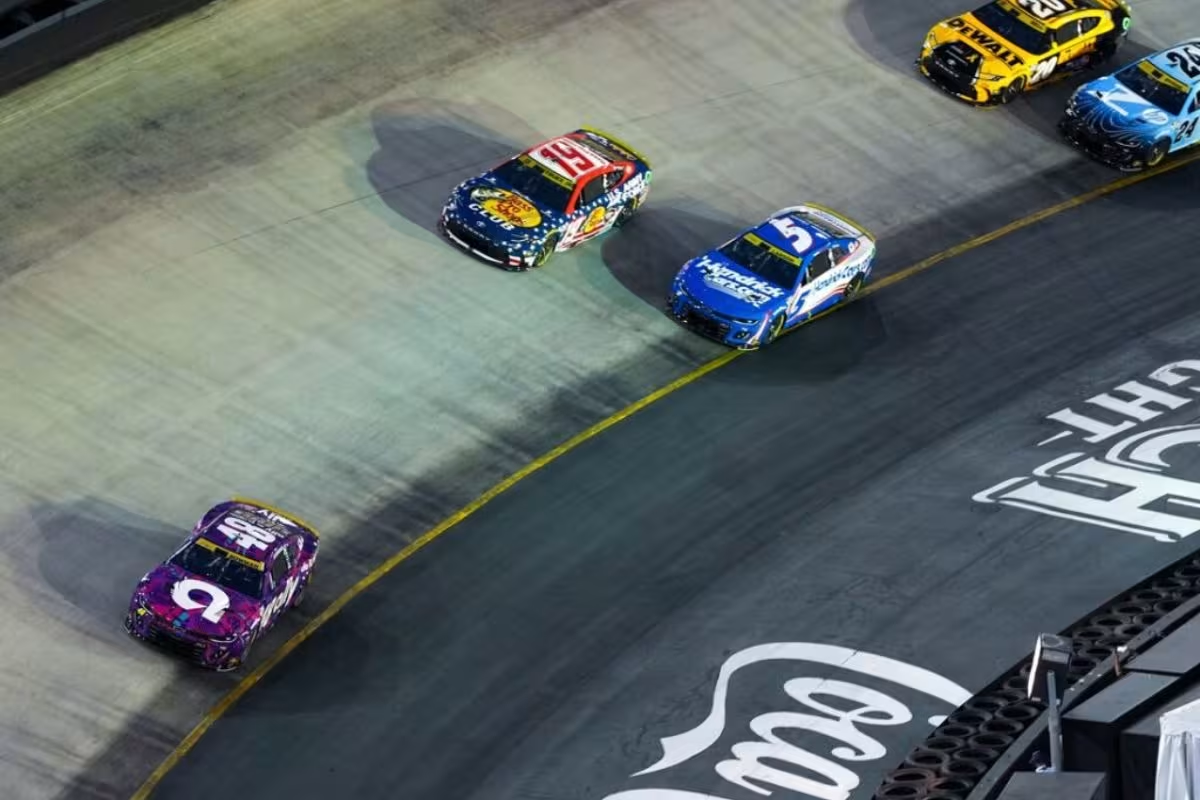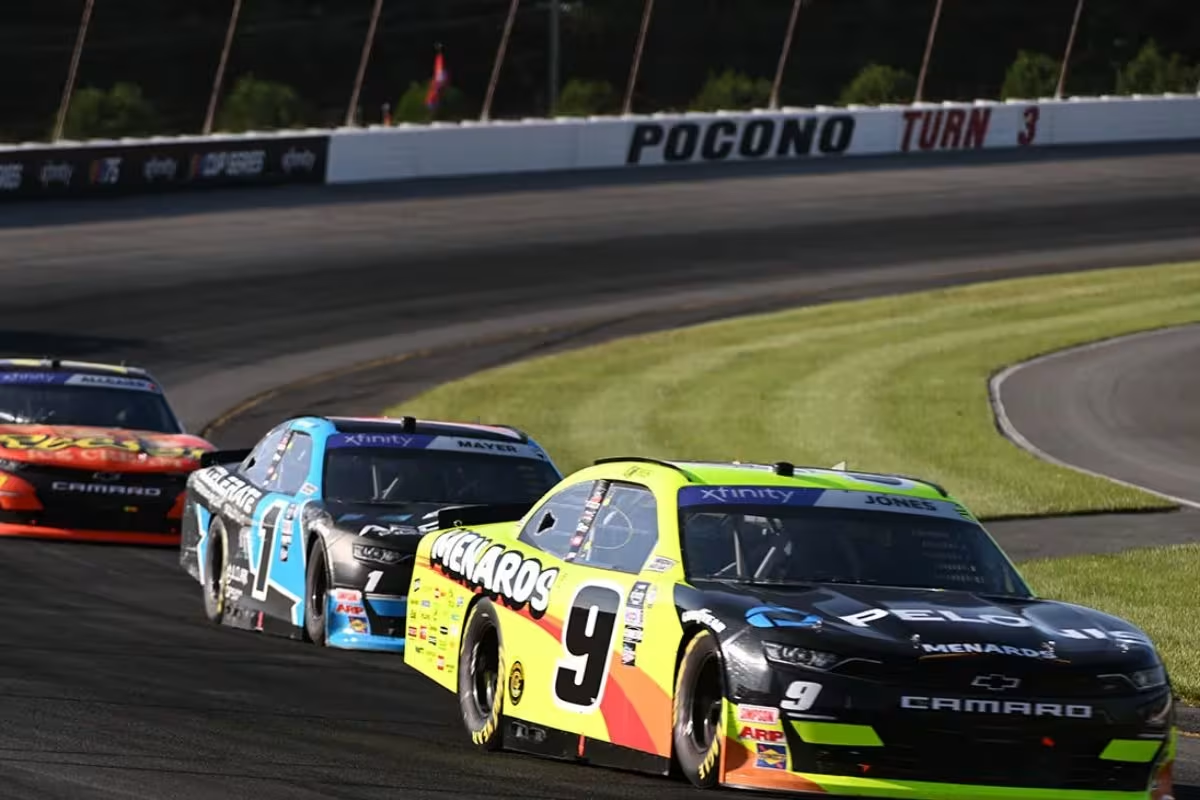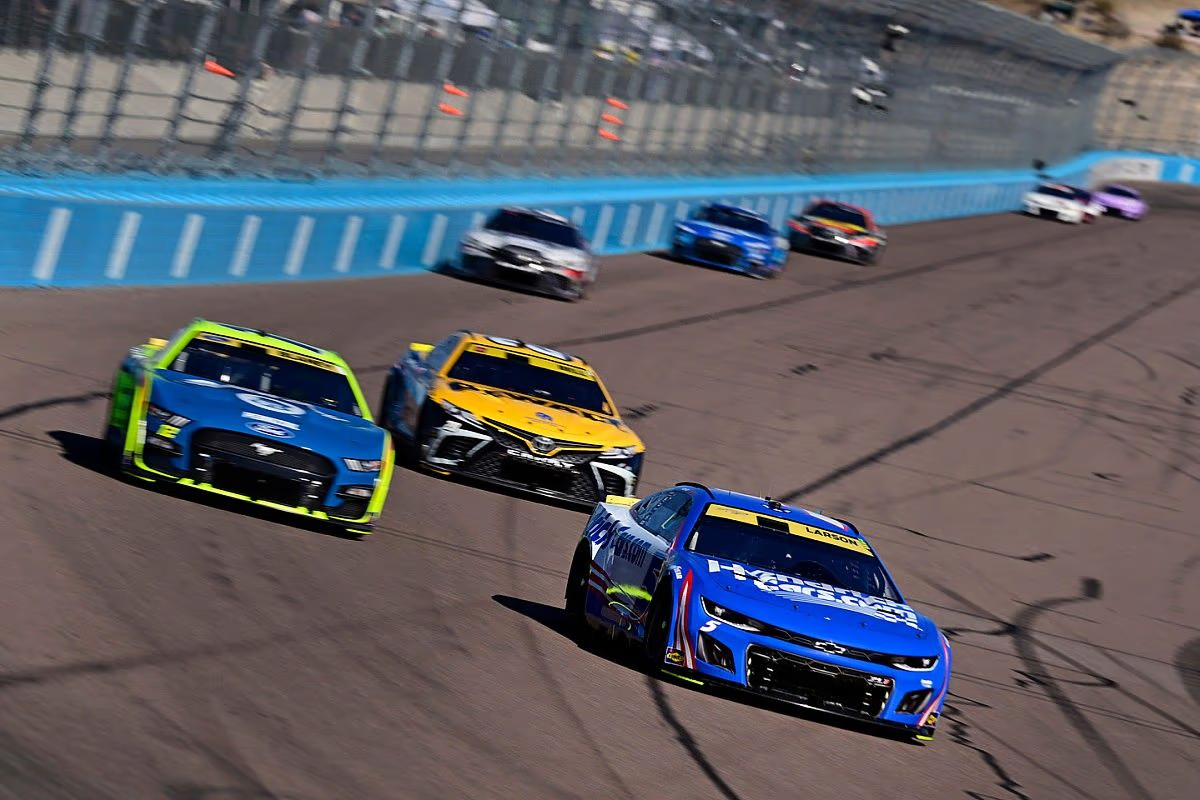NASCAR’s Monopolistic Bullies Stand Firm: The ongoing conflict between NASCAR’s entrenched power brokers and Michael Jordan’s push for reform raises critical questions about the future of the sport. As Jordan advocates for transparency and fairness in revenue allocation, the established perceiving his demands as a direct challenge to their authority. This standoff not only shows the friction between new and traditional investor but also reveals the complexities of financial disclosure in a sport characterized by its supportive behaviors. What consequence could this struggle have for the broader landscape of motorsports and its investor?
Key Highlights
- NASCAR’s entrenched power dynamics create significant resistance to Michael Jordan’s push for financial transparency and equitable practices among teams.
- The ongoing legal challenges led by Jeffrey Kessler focus to expose NASCAR’s supportive behaviors and demand fairer sharing.
- NASCAR’s history of confidentiality and competitive concerns complicates efforts to disclose financial information, hindering reform initiatives.
- investors reactions are mixed, with some supporting reforms while others resist changes to maintain the current power structure.
- The outcomes of the legal proceedings could redefine NASCAR’s regulatory landscape, impacting team relationships and future competition.
Current Situation
Steering through a landscape fraught with tension, 23XI Racing and Front Row Motorsports are challenging the entrenched power dynamics of NASCAR and the France family. This argument is not a rivalry it represents a notable shift in the operational ethos of the sport.
“The France family and NASCAR are monopolistic bullies and bullies will continue to impose their will to hurt others until their targets stand up and refuse to be victims. That moment has now arrived.”
The recent final revenue-sharing proposal, which garnered the reluctant agreement of 13 teams, highlights the unstable position many teams find themselves in, to acquiesce despite expressing dissatisfaction. The atmosphere is charged with a sense of urgency as team owners Michael Jordan, Denny Hamlin, and Bob Jenkins pursue a more transparent framework within the NASCAR ecosystem.
The current situation is indicative of broader systemic issues, where the monopoly of power held by NASCAR and its leadership poses considerable barriers to equitable financial practices. The willingness of 23XI Racing and Front Row Motorsports to confront these entrenched interests shows a growing desire for reform. Their efforts are not simply about securing better financial terms; they represent a quest for accountability and fairness that has long been absent from the sport.
As these teams mobilize to push back against the status quo, they risk further tension within the NASCAR community. However, their stance could potentially a dialogue about revenue distribution and governance in the sport.
Within this framework, the actions of Jordan, Hamlin, and Jenkins may serve as a big moment, challenging the notion of complacency among team owners and pressuring NASCAR to reconsider its monopolistic practices.
Challenges of Revealing Financial Information
The challenge of revealing financial information within NASCAR is emblematic of a broader struggle for transparency in the sport. Despite the escalating legal tensions between teams like 23XI Racing and Front Row Motorsports against NASCAR, the likelihood of obtaining detailed financial disclosures remains low. NASCAR has a long-standing history of being secretive about its revenue streams, making the prospect of transparency particularly fraught.
Several factors contribute to this reluctance:
- Historical Precedent: NASCAR has traditionally operated behind a veil of confidentiality, which has cultivated a culture of opacity that is difficult to dismantle.
- Competitive Concerns: Revealing financial information could compromise the competitive balance among teams, as insights into revenue could influence sponsorship negotiations and team strategies.
- Legal Ramifications: The ongoing lawsuit may deter NASCAR from disclosing any financial data, fearing that such transparency could be used against them in court.
As the drama unfolds during the playoffs, the stakes are higher than ever. The claims made by the plaintiffs highlight serious concerns regarding the equity of the current charter system, branding the France family and NASCAR as “monopolistic bullies.”
The outcome of this legal battle may hinge not only on the resolution of competitive fairness but also on the vital question of financial transparency. Ultimately, the ability of NASCAR to navigate these challenges could redefine the landscape of the sport, impacting stakeholders at every level.
Potential Outcomes of the Lawsuit
As the legal battle between teams like 23XI Racing and Front Row Motorsports and NASCAR looms, the potential outcomes of the lawsuit carry notable implications for the sport’s future. Not only for the teams involved but also for the structural dynamics of NASCAR itself.
A courtroom confrontation could compel NASCAR to disclose its financial records, a move that may reveal disparities in revenue distribution, potentially undermining the league’s long-held control over its economic model. If the teams succeed in their claims, it could lead to considerable changes are shared, showing a more equitable environment for all participants.
“You would think that in all reality, this will get settled beforehand. NASCAR to my knowledge has never opened up their books. Jim France is a party to this as well.”
“In addition to NASCAR and the tracks having to show every bit of income, every bit of money that flows through NASCAR. Jim France would have to do the same as part of the discovery that happens pre-trial. Will NASCAR want to get to that point? Are they going to want to tell the teams?.”-(gluck)
Conversely, NASCAR may seek to avoid the courtroom altogether, preferring to settle the dispute privately. As noted by Jeff Gluck, the prospect of revealing detailed financial information could dissuade NASCAR from pursuing a protracted legal battle. Such a settlement, while providing immediate resolution, could also entrench existing power dynamics if it fails to address the core issues raised by the teams.
Ultimately, whether the lawsuit proceeds or is settled, the outcomes will likely influence the relationship between NASCAR and its teams, shaping the organizational landscape for years to come.
The situation highlights the tension between traditional monopolistic practices and the evolving demands for transparency and fairness within the sport. The resolution of this conflict will serve as a critical juncture for NASCAR, potentially redefining its governance structure and its approach to team relationships moving forward.
Michael Jordan’s Involvement and Perspective
Michael Jordan’s entry into the NASCAR landscape as a co-owner of 23XI Racing has brought a fresh perspective to the ongoing legal dispute with NASCAR. Known for his relentless competitive spirit, Jordan has transformed the legal battle surrounding charter rights into a personal mission, reflecting his commitment to fairness in the racing industry.
His collaboration with Denny Hamlin and Front Row Motorsports highlights a tactical alliance aimed at challenging NASCAR’s operational practices.
Jordan’s determination is evident in his choice of representation; antitrust attorney Jeffrey Kessler, renowned for landmark victories, leads the charge against perceived monopolistic behavior in NASCAR. This approach signals a serious commitment to reshaping the competitive landscape.
Key elements of Jordan’s perspective include:
- Fierce Competitiveness: Jordan articulates a deep-rooted drive to equalize opportunities within NASCAR, mirroring his ethos as an athlete.
- Advocacy for Fairness: He stresses that NASCAR’s current structure is detrimental to all stakeholders, advocating for a more equitable market.
- Passion for Racing: Beyond the legalities, Jordan’s love for the sport fuels his resolve, motivating him to act in defense of fans and participants alike.
In his own words, Jordan reflects, “I’m willing to fight for a competitive market where everyone wins.” This sentiment encapsulates not only his personal ethos but also a broader vision for a transformed NASCAR landscape, one where fairness prevails.
“Everyone knows that I have always been a fierce competitor, and that will to win is what drives me and the entire 23XI team each and every week out on the track. I love the sport of racing and the passion of our fans, but the way NASCAR is run today is unfair to teams, drivers, sponsors, and fans. Today’s action shows I’m willing to fight for a competitive market where everyone wins.”-(jordan)
Next Steps in the Legal Proceedings
With the legal landscape rapidly evolving, the upcoming steps in the proceedings are crucial for both 23XI Racing and Front Row Motorsports. Central to this phase is Kessler’s motion for a Public interest which seeks to enable both teams to compete in the 2025 season under the terms of the final charter proposal. This request highlights the necessity for immediate relief from what has been perceived as NASCAR’s anti-competitive practices.
Simultaneously, both racing teams are pursuing financial compensation for the damages incurred since the initial charter agreement in 2016. This dual strategy not only showcases the urgency of their legal plight but also emphasizes the broader consequences for NASCAR’s operational framework.
Should the court rule favorably it could set a precedent for increased transparency and fairness within the sanctioning body, cultivating a more equitable competitive environment.
The outcome of these legal battles could compel NASCAR to reevaluate its policies, potentially leading to a more collaborative relationship with its teams. As both sides prepare for the next hearing, the stakes are high.
A ruling in favor of the plaintiffs may not only reshape the dynamics of NASCAR but could also signal a shift towards a more balanced regulatory approach, benefiting all stakeholders in the long term. Consequently, the next steps in these legal proceedings are not merely procedural; they could herald notable changes in the racing landscape.
News in Brief: NASCAR’s Monopolistic Bullies Stand Firm
ALSO READ: Michael Jordan’s Lawyer Claims NASCAR Is Corrupt: Are Teams Being Exploited?



